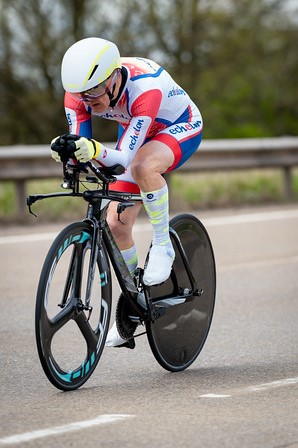Veterans Time Trials Association
Competitive Cycling for Life ^
Nutritional and Exercise Strategies for the Older Rider

The Midlands VTTA Group organised a seminar prior to their annual lunch and prize giving where they invited the well-known British Cycling coach, Dr Gordon Wright, to give a talk on strategies that would help maintain muscular strength in older athletes. Here are notes that I made of his interesting and helpful talk.
A basic challenge facing older people is that muscles shrink with age. This can be as much as 50% in our late 70s, especially if we do little exercise and eat insufficient protein. Many thousands of elderly people end up in care homes due to this muscular weakness as well as other conditions. On the other hand, a 70 year old who has continued as an athlete, and understands some simple training and nutritional strategies, can preserve muscle mass similar to a 40 year old athlete. Their muscles won’t be quite as strong and fast as the younger athlete but they can still be very well preserved. This will enable them to continue to perform to a high standard in their sport, as well as enjoying a better quality of life for themselves and indeed their families.
The key nutritional strategy for the older athlete is to increase what is termed ‘muscle protein synthesis’ in order to build and maintain their muscular strength. One particularly beneficial way of doing this is to consume a whey protein recovery drink containing 25-30 grams of protein within 20 minutes of an exercise routine or training ride. This will be rapidly digested and stimulate protein synthesis or growth in the muscles.
In addition, the older athlete needs to ensure they are consuming sufficient protein on a daily basis. NHS guidelines recommend insufficient protein for the older person who has an active lifestyle. A competitive older cyclist needs at least 1.2 to 1.6 grams of protein per kilogram of body weight each day. That is 84 to 112 grams for a 70kg rider. With more intense and higher volume training this may increase to as much as 2.0 to 2.5 grams per kilogram of body weight. We therefore need to give attention to the protein content of the foods we eat throughout the day starting with breakfast. Food labelling allows us to calculate the protein content of our food and to work out if there is sufficient protein in our diet. We should also avoid long hours between eating unless we are deliberately having a 24 hour fast that can have other benefits. One helpful protein supplement is leucine which can be added to a recovery drink.
The second strategy recommended by Dr Wright is resistance training. Riding up steep hills is a form of resistance training as are short full-on sprint intervals at a low cadence. But the older athlete will particularly benefit from weight training to strengthen and protect their muscles. A mixed routine of about 40 to 60 minutes, two or three times a week in the gym, or at home if you have the equipment, would produce real benefits. In the gym you can do leg presses and leg extensions but if you have a barbell and dumbbells at home you can do various types of squats, dead lifts and presses.
For cyclists, resistance training should be a 3 to 4 month focus during the winter but maintained with a once a week session during the racing season. Start with 4 sets of 10-15 reps with moderate weights and after 3 weeks move to 4 sets of 8 to 10 reps with heavier weights. Heavier weights will produce greater muscular adaptation. Allow a recovery time of a few minutes between sets.
Weight training should be supplemented with core exercises to strengthen those muscles which are important for cycling but not developed by cycling as a form of exercise. Sit-ups, press-ups, planks, and leg raises for example can be added on to a weights routine. The British Cycling website’s Insight Zone has examples of strength conditioning exercises.
Overall, a 12 weeks resistance training programme has been shown to increase the power and endurance of muscle fibres by over 20% - a significant improvement. Dr Wright’s final word of advice is ‘You owe it to yourself and your family to stay as strong as possible for as long as possible and enjoy yourself on the way.’
Andrew Simpkins
Highlights from 2026 AGM
Andrew Simpkins | 30-Jan-26Direct Debit
Jon Fairclough | 14-Jan-26The 2025 year in racing
Chris Lea | 06-Jan-26
